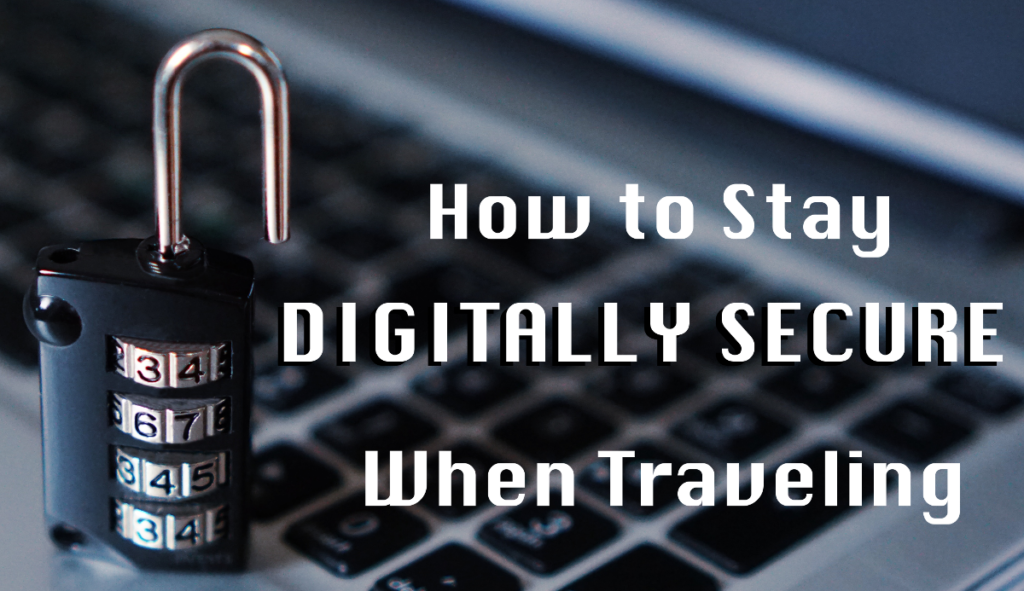Explore how to protect yourself from potential cybersecurity threats while volunteering abroad. Learn about various threats like phishing, malware, and more, and find out tips to secure your digital life.
Content Table:
- Introduction
- Unsecured Wi-Fi Networks
- Phishing Attacks
- Malware
- Social Engineering Attacks
- Physical Theft
- Essential Cybersecurity Measures
- Using strong, unique passwords
- Enabling multi-factor authentication
- Regular software updates
- Data Backup
- Online Privacy
- Encryption
- Frequently Asked Questions
- Conclusion
Volunteering abroad can be an exciting and fulfilling experience, but it’s important to be aware of potential cybersecurity threats and how to avoid them. Here are several threats you should be aware of:
- Unsecured Wi-Fi Networks: Always avoid using public Wi-Fi networks when possible. These networks are typically unsecured, which can leave your personal information exposed. If you need to use a public network, consider using a Virtual Private Network (VPN) to secure your online activities.
- Phishing Attacks: Be cautious of emails or messages that seem suspicious or are from unknown senders. Phishing scams aim to trick you into giving out your personal information by pretending to be from a trusted source.
- Malware: This can be delivered via email attachments, malicious downloads, or even websites that have been compromised. Always be wary of what you download and the sites you visit. Make sure you have reliable antivirus software installed and regularly updated on your devices.
- Social Engineering Attacks: Scammers may try to manipulate you into giving out confidential information. This could occur via a phone call, email, or even in person. Always verify the identity of the person you are dealing with before sharing sensitive information.
- Physical Theft: While this isn’t a ‘cyber’ threat per se, it is a digital security risk. Keep your devices secure at all times. Physical theft can lead to access to any information stored on those devices.
Here are some tips to avoid these threats:
- Use strong, unique passwords: Make sure your passwords are complex, and avoid using the same password for multiple accounts. Consider using a password manager to remember them for you.
- Enable multi-factor authentication: This adds an extra layer of security to your accounts by requiring a second form of identification beyond just your password.
- Keep your software updated: Regularly update your operating system and applications. These updates often include security patches to protect against known vulnerabilities.
- Back up your data: Regularly back up your data to an external drive or cloud storage. In case of a cyber attack, this will ensure you don’t lose all your information.
- Be cautious of what you share online: Be mindful of the personal information you post online or share through social media. Cybercriminals can use this information for identity theft or other malicious activities.
- Use encryption: Encrypt sensitive data to protect it in case it falls into the wrong hands. Encryption tools are widely available and many devices have encryption features built-in.
Remember, being informed and taking the necessary precautions is the key to maintaining your cybersecurity while volunteering abroad.
FAQs:
- Q: What is the most common cybersecurity threat while traveling? A: Unsecured Wi-Fi networks are one of the most common threats as travelers often need to rely on public Wi-Fi.
- Q: How can I secure my online activities on a public Wi-Fi network? A: Use a Virtual Private Network (VPN) to encrypt your internet traffic on public Wi-Fi networks.
- Q: How can I identify a phishing attack? A: Phishing attacks often come in the form of emails or messages that appear to be from trusted sources but have suspicious elements like poor grammar, requests for personal information, or links to unverified sites.
- Q: What precautions can I take against malware? A: Avoid clicking on suspicious links or downloading attachments from unknown sources. Always keep your antivirus software updated.
- Q: What is social engineering? A: Social engineering is a technique used by cybercriminals that manipulates individuals into giving out confidential information. It often involves impersonating a trusted entity.
- Q: What can I do to prevent physical theft of my devices? A: Always keep an eye on your devices in public spaces. Don’t leave them unattended. Additionally, using device tracking software can help locate them if stolen.
- Q: How do strong passwords enhance security? A: Strong, unique passwords are harder for cybercriminals to guess, thereby adding a layer of defense against unauthorized access to your accounts.
- Q: How does multi-factor authentication work? A: Multi-factor authentication requires more than one method of authentication to verify http://a-broader-view-wordpress-b4ae5c-147-93-178-254.traefik.me/wp-content/uploads/2023/05/Footer-1.png identity for a login or other transaction, thereby providing an additional layer of security.
- Q: Why is it important to update software regularly? A: Software updates often include patches for security vulnerabilities that could be exploited by cybercriminals.
- Q: What type of data should I encrypt? A: Any sensitive data, including personal identification information, credit card information, or confidential communication, should be encrypted.
Conclusion:
Securing your digital life is crucial, particularly when volunteering abroad. By being aware of potential cybersecurity threats and taking preventative steps, you can significantly reduce the risk of becoming a victim of cybercrime. Whether it’s ensuring you use secure Wi-Fi networks, protecting yourself from phishing attacks and malware, or safeguarding your devices from physical theft, each step is an important component of your overall digital security. So, stay informed, be vigilant, and ensure your digital experience abroad remains safe and secure.
-
Volunteering Abroad with Medical Missions: Make a Difference Today

Join medical group trips, Nurses Without Borders, and Dentists Without Borders to make a difference in underserved communities worldwide. Learn about the countries where these programs operate and read real-life experiences from volunteers. Volunteering overseas is an excellent opportunity to make a difference in the lives of others while experiencing new cultures and forging unforgettable…
-
Embrace Overseas Service | Transform Lives Through Global Volunteerism

International Volunteering: Discover Meaningful Travel and Transform Lives with A Broader View
-
A World of Opportunities: Unveiling the Benefits of International Volunteer Programs

Discover numerous benefits of international volunteer programs and unleash a world of rewarding opportunities with our in-depth guide.



